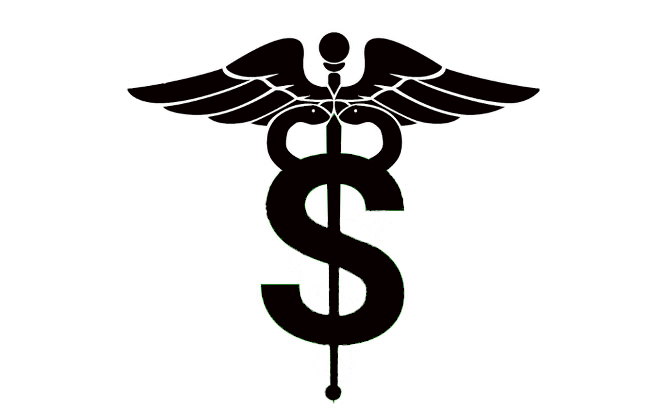2022-07-20
California’s Public Health Tax Is Dead for the Year
SACRAMENTO, Calif. — A ballot initiative that would have raised taxes on California millionaires and billionaires to fund public health programs and pandemic prevention is dead — at least for this year.
The Silicon Valley tech executives who bankrolled the measure, which had been targeted for the November ballot, said they aren’t giving up on their goal of creating the strongest state public health system in the country. But they acknowledge covid-19 is no longer top of mind for most Americans.
“Our goal was to capture people’s acute attention on the pandemic to get something done — but there are economic problems and it looks like we’re headed for a recession, so things got more complicated,” said Max Henderson, the startup investor and former Google executive spearheading the campaign. “People are expressing rising skepticism over higher taxes, and the economy is dominating the hearts and minds of the electorate.”
Gov. Gavin Newsom never publicly supported the initiative. For Henderson and the other tech entrepreneurs pushing the measure, moving forward appeared too risky without support from Newsom and a broad coalition that includes state lawmakers and powerful health and business groups.
The initiative would have imposed an additional tax “at the rate of 0.75 percent on that portion of a taxpayer’s taxable income” that exceeds $5 million. It would generate as much as $15 billion over 10 years, according to a state government analysis of the measure.
Even though the pandemic is not over and covid infections and hospitalizations are rising, the prospect of raising taxes — even on the wealthy — grew too politically toxic this year as inflation drove up the price of goods and Californians faced record-high gas prices.
“Voters are usually pretty comfortable taxing rich people, but inflation has driven voter concerns about the economy and a recession to very high levels,” said Dan Schnur, a California political strategist.
Initiative backers said they had gathered the roughly 1 million signatures needed to qualify the California Pandemic Early Detection and Prevention Act for the November ballot, but intentionally missed a June 30 deadline to submit them to the California secretary of state.
They instead submitted the signatures one day later, on July 1, making the initiative eligible for the ballot in November 2024, although the secretary of state’s office would still have to validate the signatures before placing it on the ballot.
“Voters may feel better about the economy in two years, and turnout is likely to be higher in a presidential election year — so it may be a more hospitable environment,” Schnur said.
Meanwhile, campaign leaders are negotiating with the Newsom administration to try to reach an earlier deal for more state public health funding, avoiding the ballot box. “We have an opportunity to pursue a much broader coalition and get the governor on board,” Henderson said. “If not, we’ll push hard in 2024.”
Campaign spokesperson Amelia Matier told KHN that organizers are willing to forgo the tax increases if they can strike a deal with the governor for the sweeping public health measures the initiative called for: more money for struggling local public health departments, funding for better air filtration and other safety upgrades in K-12 schools, and money to establish a California-based institute to detect and prevent emerging virus threats.
“It’s not rocket science to see that the pandemic is not top of mind as the cost of living continues to go up,” Matier said. “But we’re confident that Californians want a good plan to protect themselves from the next pandemic.”
Newsom spokesperson Alex Stack confirmed that the administration is in negotiations to reach a deal before 2024.
“The Newsom administration has committed billions of dollars to strengthen state and local pandemic response capacity, community resiliency and pioneering science through the University of California — all to make sure we’re better prepared for the next pandemic. And we’re doing that without raising taxes, which is a priority for the governor,” Stack said in a statement.
That said, “we all remain in conversation about how we can collectively keep California on the leading edge of research and innovation,” Stack said.
Amid pressure from public health officials, Newsom and state Democratic leaders infused California’s public health agencies with new funding that kicked in July 1.
The $300 million annual general fund investment will help California fortify its public health system, said Kat DeBurgh, executive director of the Health Officers Association of California, which represents the state’s 61 local public health officers. It comes after decades of disinvestment in public health that has made detecting and preventing deadly outbreaks and responding to the coronavirus pandemic more difficult for public health officials, she said.
The proposed ballot measure would strengthen California’s public health system and make it a leader nationally, she said, while other states are acting to weaken public health.
“There’s absolutely still a need for additional funding,” DeBurgh said, noting that her organization has formally endorsed the initiative. DeBurgh said she prefers that new public health funding be approved via the initiative rather than through the state budget process because voters’ decisions are harder to undo.
She rattled off a list of critical public health challenges across the state that included skyrocketing rates of sexually transmitted infections, intensifying heat waves, and the deadly opioid crisis. The state is also wrestling with the emerging monkeypox threat.
“We view the $300 million in annual funding from the governor as a foundational investment, but local health departments have more to work on than ever before,” she said.
This story was produced by KHN, which publishes California Healthline, an editorially independent service of the California Health Care Foundation.
KHN (Kaiser Health News) is a national newsroom that produces in-depth journalism about health issues. Together with Policy Analysis and Polling, KHN is one of the three major operating programs at KFF (Kaiser Family Foundation). KFF is an endowed nonprofit organization providing information on health issues to the nation.

